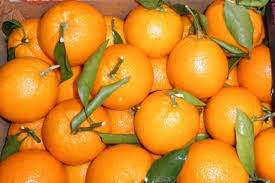What is sustainable Agriculture?
Sustainable farming through organic farming has often been described as a way of growing food in a way that it does not have an adverse effect on the environment, that is healthy for the consumer, the animals and the land on which it is grown/raised, that takes into consideration the health and welfare of the workers, and which supports and gives back to the local community. Sustainable agriculture is not only about conserving, but preserving as well. As a rule of thumb, sustainable agriculture believes what gets taken out of the environment should be put back into the environment.
Fruit production faces a whole range of sustainability issues today, spanning all the economic, environmental, and social dimensions mentioned above. For growers of all crops, economic sustainability must be addressed in the short-term or their operation will fail in an unsubsidized system. The economic issues include rising production costs (e.g. labor) with static or declining prices; retail consolidation leading to more sellers than buyers and less economic power for producers; declining demand for some fruits; global competition and counter seasonal production in opposing hemispheres.
Environmental issues around pesticides, water use and quality, energy, biodiversity, and air (e.g. methyl bromide) all relate to sustainability, but often on a longer time frame than economics. And social sustainability encompasses worker safety and other labor issues, the health-imparting benefits of fruit in the diet, urbanization and land use changes, and food security.
The sustainability issues influencing fruit production will depend on the scale, the marketing channels, and the geographic context of location. A small scale, direct market tree-tomato grower will face different challenges than a large scale export oriented apple producer. Apple producers in Kenya face different challenges than their counterparts in Egypt. Therefore, any discussion of sustainability must take context into account.
Related Content: make money through passion fruit farming
Rise Of Organic farming in Fruit Production
 Organic farming is one approach to increasing sustainability in agriculture that is market-driven and growing rapidly. The origins of organic farming come from a focus on improving organic matter in the soil in order to grow healthy plants that can resist pests and diseases, and that provide maximum health to the people and animals that eat them. One guiding principle is the use of natural materials for crop production and the avoidance of synthetic materials (e.g. fertilizers, pesticides). Another principle is to work with the natural systems and processes as much as possible, concurring with the.
Organic farming is one approach to increasing sustainability in agriculture that is market-driven and growing rapidly. The origins of organic farming come from a focus on improving organic matter in the soil in order to grow healthy plants that can resist pests and diseases, and that provide maximum health to the people and animals that eat them. One guiding principle is the use of natural materials for crop production and the avoidance of synthetic materials (e.g. fertilizers, pesticides). Another principle is to work with the natural systems and processes as much as possible, concurring with the.
Thus, organic farming shares virtually all the goals articulated by sustainable agriculture proponents. As organic farming expanded in the 1980s, certification programs became necessary to guarantee to the consumer that the product they were buying, and generally paying a higher price for, was indeed produced as they expected. The ‘no chemicals’ or ‘no synthetics’ principles were often the strongest impressions in the consumer mind.
Organic matter, a key consideration in organic agriculture, is arguably the most important aspect of sustainable soil management. Tillage is a practice that can quickly degrade organic matter. Since tree fruit and vine systems are perennial and typically involve little tillage after planting, they can be very conducive to increasing soil organic matter. On the other hand, tree fruit and vine crops typically require a high level of pest management to produce marketable crops.
Organic growers are greatly restricted in the pest control products they can use. The allowed products are generally less effective and of shorter duration than products that growers following other production approaches can use.
Challenges of Organic farming in Fruit Production
Nutrient Management- Key challenges for organic fruit production include nutrient management, weed control, and control of replant diseases. Organic pear growers in Kenya report a decline in fruit yield and size over time, due to the inability to control perennial weeds and control their competition for slowly available nitrogen. Organic tree fruit growers in Kenya will commonly fumigate the soil prior to replanting an orchard (and restart their certification process) rather than risk the economic devastation from replant disease, for which there are no proven organic controls.
Resistance management- This is another challenge, given the fewer effective tools for pest control. When a new tool comes along, such as spinose, there is a tendency to overuse it and thus increase the likelihood of inducing pest resistance. In many regions, organic fruit producers must spray more frequently, and use more kilograms of pesticide product, often achieving a lower marketable yield. This conflict between the potential for improved environmental sustainability of organic systems and their challenge in maintaining economic sustainability has limited expansion of organic fruit production in certain regions.
The continuing expansion of organic fruit production in semi-arid regions in Kenya reiterates the importance of the biophysical conditions and how well they support sustainability.
For more information about organic farming, contact us or visit our offices. In addition, we have a variety of fruits that do well in your area. We normally deliver our seedlings on a first come service.
Book now.











